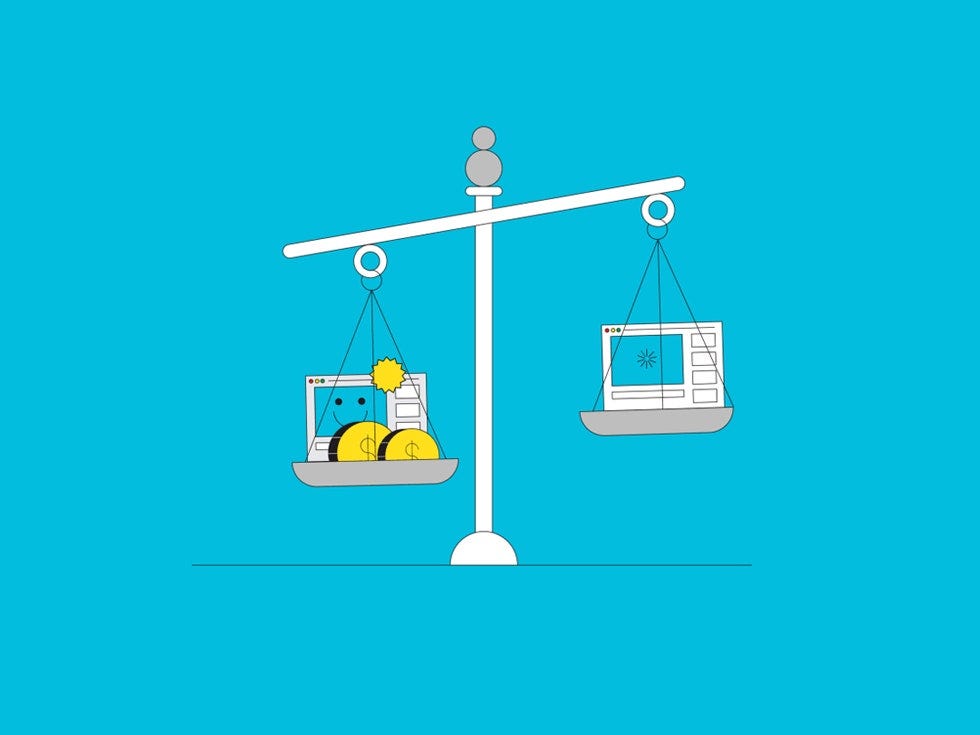The Net Neutrality Paradox
Unraveling the Net Neutrality Paradox: Navigating the Crossroads of Equal Access, Profit, and Telco-OTT Partnerships in the Digital Age.
Hi everybody🙋🏻♂️,
Welcome to
Rise & Shine☀ - Sunday Edition,
Every Sunday, you'll receive an email with helpful information to help you better understand a particular topic.
In a world where the internet is increasingly intertwined with our daily lives, the concept of net neutrality has emerged as a critical, albeit contentious, principle that underpins the digital realm. It is the idea that the internet should be an open, level playing field where all data is treated equally, regardless of its source or content.
This means that Internet Service Providers (ISPs) should not discriminate between different types of data traffic, nor should they impose differential charges based on the nature of the content being accessed. In essence, net neutrality ensures that the internet remains a democratic space where users have unrestricted access to the vast trove of information and services it offers.
But what if this foundational principle were to crumble, allowing ISPs to prioritize and monetize certain content while relegating others to a slower lane?
This is the heart of the net neutrality debate—a complex and evolving discourse that impacts not only the technology sector but also the broader digital landscape.
The Internet as an Equalizer
At its core, net neutrality seeks to maintain the internet as an equalizer—a platform that doesn't play favorites. Imagine a world where ISPs have the power to decide which websites or services receive preferential treatment.
Picture an online ecosystem where your choice of video streaming service, for example, affects your overall internet experience. In such a scenario, ISPs could potentially throttle the speed of data-intensive services like Netflix while giving a boost to their in-house alternatives, effectively deciding what content you access faster and what you access slowly.
This concept is not purely hypothetical. In the past, net neutrality violations have occurred, and the consequences have been far-reaching. One notable case involves Netflix in the United States. Faced with slow streaming speeds for its content, Netflix was essentially strong-armed into paying additional fees to ISPs to ensure its service remained competitive.
As soon as the funds flowed into the telcos' coffers, Netflix customers saw a dramatic 67% increase in internet speeds during streaming. This episode exemplifies the immense power ISPs can wield over the digital landscape and, by extension, the choices available to consumers.
The World's Stance on Net Neutrality
While the principles of net neutrality may seem straightforward, their implementation and acceptance vary widely across the globe. The United States, for instance, has witnessed a seesaw battle over net neutrality laws for years, with no concrete legislation in place to date.
In contrast, India boasts one of the world's strongest net neutrality laws, a framework that gained prominence in 2016 when Facebook attempted to launch Free Basics. This program would have offered data-free access to select platforms through partnerships with specific telcos. Indian regulators swiftly intervened, putting an end to this initiative on the grounds that it violated net neutrality by creating a tiered internet experience.
A New Chapter in the Net Neutrality Saga
Recently, the net neutrality debate has resurfaced in India as telecom giants, including Jio, have appealed to regulators to compel Over-The-Top (OTT) platforms like Netflix to pay for using telco infrastructure. Their argument hinges on the idea that bandwidth-intensive services should bear additional costs, effectively challenging the sanctity of net neutrality.
In response, Indian tech companies and startups have risen against this proposal, emphasizing its potential unfairness. They contend that net neutrality plays a pivotal role in India's burgeoning startup ecosystem by ensuring a level playing field. This means that large corporations don't receive preferential treatment over smaller players.
However, the telcos have countered these claims. They argue that their request is merely for a usage fee for their infrastructure and that they are open to exempting smaller startups from these charges. In their view, such a fee structure does not infringe upon the principles of net neutrality.
The Role of Telco-OTT Partnerships
An intriguing twist in this debate is the existence of telco-OTT (Over-The-Top) partnerships, where telecom companies and streaming services collaborate. Jio, for example, bundles Netflix content with its prepaid network, while Airtel offers Netflix partnerships on select postpaid plans. These partnerships have raised questions about preferential treatment for certain content in exchange for financial agreements, sparking debates on whether these collaborations compromise the integrity of net neutrality.
The Broader Implications
The net neutrality debate is far from over, and its implications ripple across the digital landscape. It is a discussion about the future of the internet—about who controls it, who profits from it, and who gets to access it without hindrance. As the discourse unfolds, there are fundamental questions to consider: Where should the line be drawn between regulation and innovation? How can we ensure that the internet remains an equitable space for all, rather than succumbing to corporate interests?
In a rapidly evolving digital age, where the boundaries of net neutrality are continually tested, striking the right balance between access, innovation, and profit is no easy feat. Net neutrality isn't merely a technological or regulatory issue; it's a reflection of the values we hold for the digital world we inhabit. The outcome of this debate will undoubtedly shape the internet's future and determine whether it remains an open frontier or becomes a landscape marked by digital toll booths.
Thanks for being a part of the Rise & Shine community!
If you enjoyed today's newsletter, please consider sharing it with your friends and on social media 🌟
Help us spread the word about our daily dose of inspiration, growth hacks, and tech updates.
Together, we can empower more individuals to achieve their full potential.
Let's Rise & Shine together!
Thank you for reading our newsletter!🤗
Join our community on LinkedIn.

